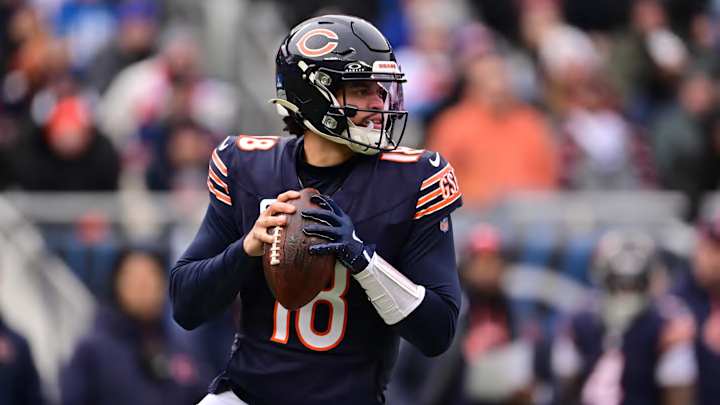The holidays are fully underway and the Chicago Bears (4-11) have a chance to spread some cheer by snapping their nine-game losing streak against the Seattle Seahawks (8-7) on Thursday Night Football. In the team's final home game of the season, the Bears play host to a difficult NFC West opponent whose post-season hopes are still alive.
While the Bears have been long-eliminated from the playoffs, a win before the end of the league year seems important for a team that has been on the slide for the last two-thirds of the regular season. A primetime game at home against a wildcard hopeful the day after Christmas is probably the Bears' best shot, but if they are to be victorious tonight, they will have to accomplish the following three keys to success.
1) Be More Productive on the Ground
Offensively, the Bears have struggled to run the ball all year. Ranked in the bottom quarter of the league in terms of team rush yards per game with just over 103 yards, the Bears have dropped to less than 80 rush yards per game over their last five contests. Between injuries, inconsistencies in offensive line play, and questionable play-calling, there are a lot of factors that need to improve if the rushing attack is going to do the same.
Through 15 games, the Bears offense has just 88 carries by players not named D'Andre Swift or Caleb Williams. In other words, the rushing attack has become relatively predictable, with either Swift carrying the ball traditionally or Williams taking the rock on rollouts, scrambles, and RPOs. Receiver D.J. Moore has taken carries in recent weeks, but with reserve runningback Roschon Johnson back from a midseason injury, it is unclear how heavily the receiver will be utilized moving forward.
With both of their top two running backs averaging less than four yards per carry, it is no surprise that the offense has struggled to find their footing. If the defense does not feel the need to respect the rushing attack, they can devote more focus to the quarterback and the passing game. The Seahawks rank around the middle of the league with just under 125 rush yards allowed per game, and if the Bears can get close to that number on the ground, the offense should find it easier to pass the ball, score points, and win the time-of-possession battle.
2) Intercept Smith in Clutch Situations
Defensively, the Bears need to key in on quarterback Geno Smith, who has dictated many of the Seahawks' games through this point. Over Seattle's eight wins, Smith has totaled eight passing touchdowns and five interceptions while averaging just shy of 240 yards per game. The seven losses tell a different story, where Smith has thrown 11 interceptions in seven games while roughly maintaining his touchdown total at nine and bumping his yards per game to 290.
Smith's problems with ball security down the field have done the Seahawks in several times this season, especially when looking at where and when the former first-rounder throws these interceptions. Smith leads the NFL in red zone picks with four, contributing to seven total interceptions in opponent territory. Smith is also second in the NFL with the most second-half interceptions with nine, a figure that further shows the quarterback's struggles in need-it situations.
The Bears started the season with one of the stingiest secondaries in the NFL, but their 11 interception total currently places them around the middle of the league. The defense should have opportunities to take the ball away from the Seahawks offense, and doing so near the goal line and in the second half could prove to be an insurmountable hill to climb for an offense on the road.
3) Shut Down Seattle's Run Game
Entering week 17, the Bears are one of nine teams that allows more than 130 rushing yards per game, and their averages of late are even worse. Over the last four games, the Bears have allowed over 145 rush yards per game while surrendering six total touchdowns on the ground.
Fortunately for the Bears, the Seahawks have one of the league's worst rushing attacks, and they will be at an even greater disadvantage in Chicago. Averaging 91.9 rush yards per game - the third-worst mark in the league - the Seahawks enter Thursday without starting running back Kenneth Walker III, who has been ruled out with an ankle injury.
Second-year rusher Zach Charbonnet will likely see the majority of the carries in Walker's absence, and for good reason. The UCLA product has averaged 4.3 yards per carry on just over 100 rushes while punching in eight touchdowns, with three of the scores coming at the goal line. With the change-up in the backfield, the Seahawks may find it harder than usual to move the ball on the ground, and if the Bears' defense can force their opposition to become one-dimensional early in the game, it could make for a long night for Smith and the passing attack.
